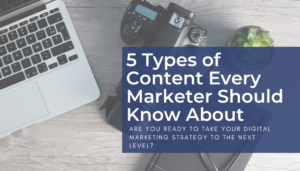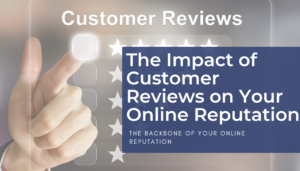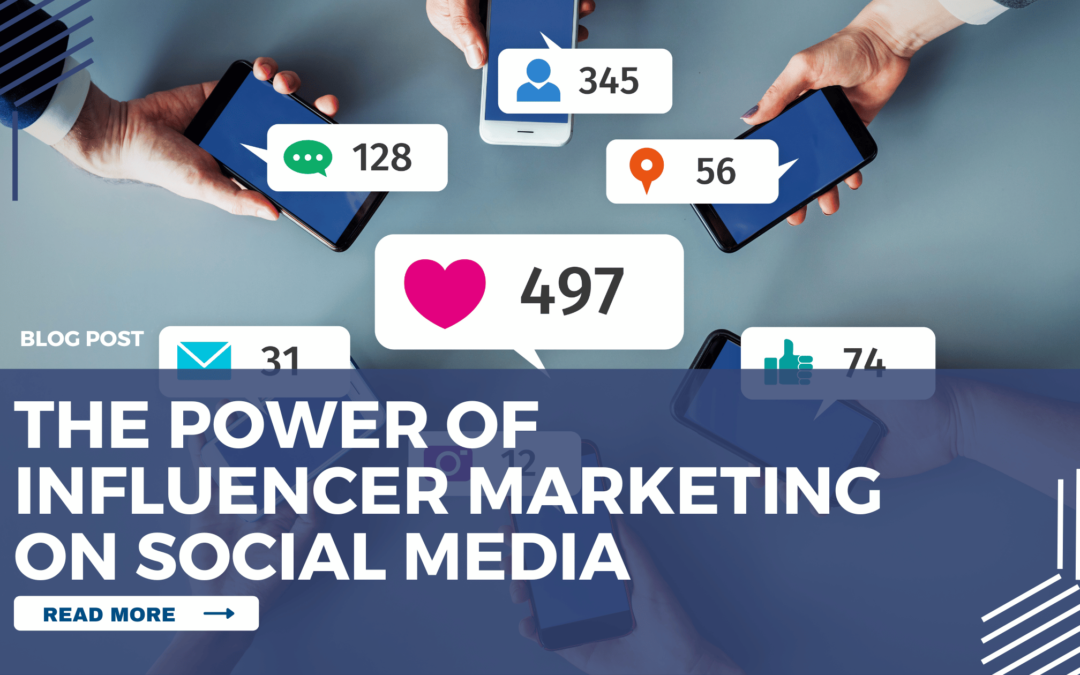Social media has transformed the way brands communicate with their target audience. With over 4.2 billion social media users globally, social media platforms offer an enormous opportunity for brands to reach and engage with their target customers. In recent years, influencer marketing has emerged as a powerful tool for brands to connect with their audience on social media.
What is influencer marketing?
Influencer marketing involves partnering with social media influencers, who have a large following and a high engagement rate. The goal of this is to promote a brand’s products or services. Influencers are individuals who have built a reputation and following on social media and are considered experts in their niche.
Brands collaborate with influencers to leverage their credibility and trust with their followers, and to reach a wider audience. Influencer marketing can take various forms. This can include sponsored posts, product reviews, social media takeovers, and influencer-hosted events.
Overview of social media platforms
Social media platforms, such as Instagram, TikTok, Facebook, and YouTube, offer brands an opportunity to connect with a massive audience. These platforms enable brands to share content, engage with followers, and build communities around their products or services.
Each platform has a unique set of features and demographics. It’s important for brands to carefully select the platforms that align with their target audience and marketing goals.
Importance of influencer marketing in social media
Influencer marketing has become a key strategy for brands to reach and engage with their audience on social media. With the rise of ad-blocking software and the declining effectiveness of traditional advertising methods, influencer marketing provides a more authentic and effective way for brands to connect with their audience.
Influencers have a dedicated following, and their endorsement of a brand can significantly impact brand awareness, credibility, and sales. As a result, influencer marketing has become an essential component of many brands’ social media strategies.
In summary, the power of influencer marketing in social media is undeniable. The next section will explore the impact of social media on influencer marketing and how it’s transformed the way brands approach their social media strategies.
The Impact Of Social Media On Influencer Marketing
Social media has revolutionized the way influencer marketing works. It has played a significant role in building influencer authority, expanding influencer reach and engagement. It has also helped in fostering relationships between influencers and brands.
Role of social media in building influencer authority
Social media has provided a platform for individuals to build authority and influence in their respective niches. By consistently sharing content that resonates with their audience, influencers have been able to establish themselves as trusted sources of information in their fields.
Brands can leverage the authority and credibility of influencers to promote their products or services. Influencers are seen as authentic and genuine by their followers. Their endorsement of a brand can significantly impact brand trust and credibility.
The power of social media in influencer reach and engagement
Social media has enabled influencers to reach a massive audience and engage with them on a personal level. Social media algorithms prioritize content that generates engagement, such as likes, comments, and shares. This means that influencers who consistently produce high-quality content are likely to have significant reach and engagement.
By collaborating with influencers, brands can tap into their massive reach and engage with their target audience in a more meaningful way. Influencers can create content that speaks directly to their followers. Therefore, increasing the likelihood that the brand’s message will be well-received.
Social media as a tool for building relationships between influencers and brands
Social media has also made it easier for brands to connect and build relationships with influencers. Brands can identify and reach out to influencers that align with their brand values and marketing goals. Similarly, influencers can easily respond and engage with brands on social media.
By fostering authentic relationships with influencers, brands can create long-lasting partnerships that benefit both parties. Influencers can receive compensation for their work, while brands can benefit from the influencer’s reach and credibility.
In conclusion, social media has had a significant impact on the way influencer marketing works. It has enabled influencers to establish authority and reach a massive audience. It’s also made it easier for brands to identify and collaborate with influencers. The next section will explore the benefits of influencer marketing in social media.
The Benefits Of Influencer Marketing In Social Media
Influencer marketing offers numerous benefits to brands, including increased brand awareness, higher engagement rates, and improved brand credibility. Let’s explore these benefits in more detail:
Increased brand awareness
Influencer marketing can help brands reach a wider audience and increase their brand awareness. By collaborating with influencers who have a large following and high engagement rate, brands can introduce their products or services to a new audience.
In addition, influencers can create content that showcases the brand’s products or services in a creative and engaging way, increasing the likelihood that the brand’s message will be seen and remembered.
Higher engagement rates
Influencer marketing can also lead to higher engagement rates. Influencers have a dedicated following who trust and value their opinions. When an influencer promotes a brand’s products or services, their followers are more likely to engage with the content, such as liking, commenting, or sharing it.
This increased engagement can help brands build a community around their products or services, leading to long-term relationships with their customers.
Improved brand credibility
Influencers are seen as authentic and genuine by their followers. By partnering with influencers, brands can leverage the credibility and trust that influencers have built with their audience.
When an influencer promotes a brand’s products or services, it can significantly impact brand credibility. Followers are more likely to trust and value the brand’s message when it comes from a trusted influencer.
Cost-effective marketing strategy
Influencer marketing can also be a cost-effective marketing strategy. Compared to traditional advertising methods, influencer marketing can provide a higher return on investment (ROI) for brands.
By collaborating with influencers, brands can create content that is more engaging and authentic, leading to higher engagement rates and better ROI.
Ability to target specific audiences
Social media platforms enable brands to target specific audiences based on demographics, interests, and behaviors. By collaborating with influencers who have a specific target audience, brands can reach their ideal customers more effectively.
This targeted approach can lead to higher conversion rates and a better return on investment for brands.
In conclusion, influencer marketing offers numerous benefits to brands, including increased brand awareness, higher engagement rates, improved brand credibility, cost-effectiveness, and the ability to target specific audiences. These benefits have made influencer marketing a vital component of many brands’ social media strategies.
Best practices for influencer marketing in social media
While influencer marketing can be a powerful tool for brands, it’s important to follow best practices to ensure success. Here are some best practices for influencer marketing in social media:
Choose the right influencers
When selecting influencers to collaborate with, it’s important to consider their values, audience demographics, and engagement rate. Brands should look for influencers whose values align with their own and who have a target audience that matches their ideal customer.
It’s also important to consider an influencer’s engagement rate. An influencer with a smaller following but a high engagement rate can be more effective than an influencer with a large following but a low engagement rate.
Clearly define the goals and expectations
Before collaborating with influencers, brands should clearly define their goals and expectations. This includes the type of content that will be created, the timeline for delivery, and the compensation for the influencer’s work.
By clearly defining these expectations, both the brand and the influencer can work together more effectively and ensure that the campaign is successful.
Ensure authenticity and transparency
Authenticity and transparency are essential for successful influencer marketing. Influencers should disclose any sponsored content to their audience and ensure that their content is genuine and aligns with their personal brand.
Brands should also ensure that the influencer’s content is clearly labeled as sponsored content, and that any claims or endorsements made by the influencer are truthful and accurate.
Track and measure results
To ensure the success of influencer marketing campaigns, it’s important to track and measure results. Brands should track metrics such as engagement rates, reach, and conversions to determine the effectiveness of their campaigns.
By analyzing these metrics, brands can refine their approach and make data-driven decisions for future influencer marketing campaigns.
Foster long-term relationships
Finally, brands should focus on fostering long-term relationships with influencers. Long-term partnerships can be more effective than one-off collaborations, as influencers become more familiar with the brand and can create content that is more authentic and effective.
In addition, long-term partnerships can lead to increased loyalty and advocacy from the influencer, as they become more invested in the brand and its success.
In conclusion, following best practices is essential for successful influencer marketing in social media. By choosing the right influencers, clearly defining goals and expectations, ensuring authenticity and transparency, tracking and measuring results, and fostering long-term relationships, brands can create effective influencer marketing campaigns that drive results.
Metrics for measuring the success of influencer marketing campaigns
Measuring the success of an influencer marketing campaign is essential to understand its effectiveness and make data-driven decisions for future campaigns. Here are some metrics that brands can use to measure the success of their influencer marketing campaigns:
Reach: Reach is a metric that measures the number of people who have seen the content created by the influencer. This metric can help brands understand the potential audience size for their campaign.
Engagement: Engagement is a metric that measures the level of interaction that people have with the content created by the influencer. This can include likes, comments, shares, and saves.
High engagement rates indicate that the content resonates well with the audience and can lead to increased brand awareness and credibility.
Conversions: Conversions are a metric that measures the number of people who take a desired action as a result of the influencer marketing campaign. This can include making a purchase, signing up for a newsletter, or downloading an app.
Return on investment (ROI): ROI is a metric that measures the financial return on investment for the influencer marketing campaign. This can include the revenue generated from the campaign, as well as the cost of working with the influencer.
Brand sentiment: Brand sentiment is a metric that measures the overall perception of the brand among the target audience. This can be measured by analyzing social media mentions and comments related to the campaign.
Positive brand sentiment can indicate that the campaign was successful in improving brand awareness and credibility.
Audience demographics: Audience demographics can help brands understand whether their campaign is reaching the intended target audience. This can include metrics such as age, gender, location, and interests.
By analyzing these metrics, brands can refine their influencer marketing strategy and create more effective campaigns in the future.
In conclusion, measuring the success of influencer marketing campaigns is essential to understand their effectiveness and making data-driven decisions for future campaigns. Brands can use metrics such as reach, engagement, conversions, ROI, brand sentiment, and audience demographics to measure the success of their campaigns and refine their influencer marketing strategy.
Challenges and limitations of influencer marketing in social media
While influencer marketing can be a powerful tool for brands to reach their target audience, there are several challenges and limitations that brands should be aware of. Here are some of the most common challenges and limitations of influencer marketing in social media:
Authenticity and transparency
One of the biggest challenges of influencer marketing is ensuring authenticity and transparency. Consumers are becoming more savvy and can easily spot inauthentic content or sponsored posts.
To ensure authenticity, brands should work with influencers who align with their brand values and allow them creative freedom to create content that resonates with their audience. Additionally, influencers should clearly disclose sponsored content to their audience.
Finding the right influencer
Another challenge of influencer marketing is finding the right influencer for your brand. It’s important to find an influencer who aligns with your brand values, has a large and engaged audience, and can create high-quality content.
Brands can use influencer marketing platforms or work with agencies to find the right influencer for their brand.
Measurement and metrics
Measuring the success of an influencer marketing campaign can be challenging. It’s important to define clear goals and metrics for the campaign. Even then, it can be difficult to accurately measure the impact of the campaign on brand awareness, engagement, and sales.
Brands should use a combination of metrics such as reach, engagement, conversions, ROI, brand sentiment, and audience demographics to measure the success of their campaign.
Budget constraints
Working with influencers can be costly, especially for smaller brands. However, it’s important to set a realistic budget for the campaign and find influencers who are within your budget.
Legal and regulatory compliance
Influencer marketing is subject to legal and regulatory compliance, including disclosure requirements and consumer protection laws. Brands should ensure that their influencer marketing campaigns comply with these regulations to avoid potential legal issues.
Limited control over content
While working with influencers allows for creative freedom and authenticity, it also means that brands have limited control over the content created by the influencer. Brands should therefore work closely with influencers to ensure that the content aligns with their brand values and messaging.
In conclusion, while influencer marketing can be a powerful tool for brands to reach their target audience, there are several challenges and limitations that brands should be aware of. Ensuring authenticity and transparency, finding the right influencer, measuring the success of the campaign, budget constraints, legal and regulatory compliance, and limited control over content are some of the most common challenges and limitations of influencer marketing in social media. By addressing these challenges, brands can create effective influencer marketing campaigns that drive results and improve their social media presence.
Future trends in influencer marketing in social media
As the use of social media continues to grow, influencer marketing is expected to play an increasingly important role in brand marketing strategies. Here are some of the future trends in influencer marketing in social media:
Micro-influencers
While working with celebrity influencers has been popular in the past, brands are now turning to micro-influencers. Micro-influencers typically have a smaller but more engaged audience and are more affordable to work with. They also have a more niche following, which can be beneficial for brands looking to target a specific audience.
Authenticity and transparency
As consumers become more savvy, brands will need to ensure authenticity and transparency in their influencer marketing campaigns. Consumers are more likely to engage with content that feels genuine, and they appreciate when influencers disclose sponsored content.
Long-term partnerships
Brands are now seeking long-term partnerships with influencers rather than one-off campaigns. This allows for a deeper relationship between the brand and the influencer, therefore, leading to more authentic content that resonates with the audience.
Video content
Video content is becoming increasingly popular on social media, and brands are starting to use video content in their influencer marketing campaigns. This includes live streaming, video stories, and TikTok videos. Video content is more engaging and can help brands connect with their audience in a more meaningful way.
AI and technology
Artificial intelligence and technology are starting to play a bigger role in influencer marketing. Brands can now use AI to identify the best influencers for their brand and to analyze the success of their campaigns. Additionally, technology such as virtual and augmented reality can be used to create immersive experiences for the audience.
Diversifying social media platforms
While Instagram has been the primary platform for influencer marketing, brands are now diversifying their social media platforms. This includes platforms such as TikTok, YouTube, and Twitch. Brands are realizing that different social media platforms attract different audiences, and it’s important to have a presence on multiple platforms.
To summarize, influencer marketing in social media is constantly evolving, and brands need to stay ahead of the curve to remain competitive. The future trends in influencer marketing include micro-influencers, authenticity and transparency, long-term partnerships, video content, AI and technology, and diversifying social media platforms. By incorporating these trends into their strategies, brands can create effective campaigns that resonate with their target audience and improve their social media presence.
Final Thoughts
To sum up, Influencer marketing has become a powerful tool for brands to reach their target audience and increase their brand awareness, engagement, and credibility. Social media platforms such as Instagram, TikTok, and YouTube have enabled influencers to build large followings and create content that resonates with their audience.
However, successful influencer marketing requires more than just finding the right influencer. Brands must follow best practices such as clearly defining goals and expectations, ensuring authenticity and transparency, and fostering long-term relationships with influencers.
By following these best practices and measuring results, brands can create effective influencer marketing campaigns that drive results and improve their social media presence.
As the influence of social media continues to grow, influencer marketing is likely to become even more important for brands. By embracing this trend and working with influencers to create authentic and engaging content, brands can build long-term relationships with their customers and drive business success.
View some of our most recent blog posts:
- Understanding the Basics of Pay-Per-Click Advertising: A Beginner’s Guide

- 5 Types of Content Every Marketer Should Know About

- The Impact of Customer Reviews on Your Online Reputation

- Measuring the ROI of Your Social Media Marketing Campaign: Unraveling the Secrets to Digital Success

- Content Marketing vs. Traditional Advertising: Which is More Effective?

- Title: The Future of SEO: Unlocking the Secrets to Digital Success


